Vladimir Bolea: Moldova actively negotiating long-term gas contracts with Azerbaijan - INTERVIEW
- 11 April, 2025
- 13:50
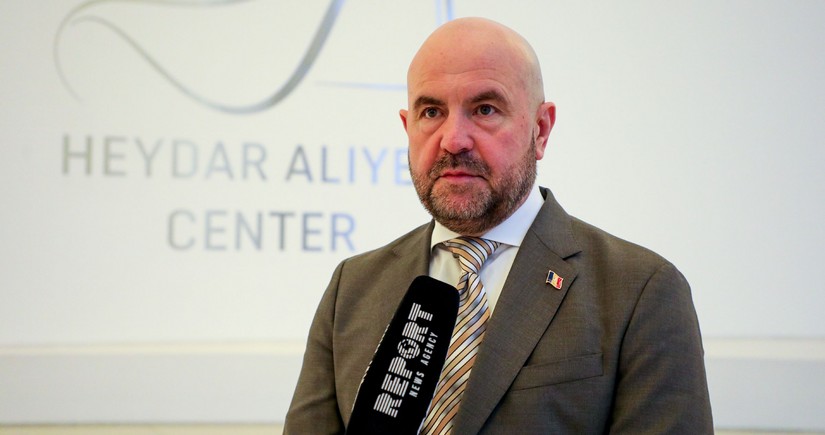
Moldova is intensifying efforts to modernize infrastructure and expand foreign economic relations in the context of its course toward integration with the European Union. The country's key priorities are developing the transport and logistics network, strengthening energy security, and creating an attractive environment for foreign investments, including from South Caucasus countries. Azerbaijan is viewed by Chisinau as an important strategic partner in these areas.
In an exclusive interview with Report, Deputy Prime Minister and Minister of Infrastructure and Regional Development of Moldova Vladimir Bolea discussed plans to transform the country into a logistics hub, prospects for cooperation with Azerbaijan in energy, transport, and agro-industry, as well as opportunities for Azerbaijani investors as part of Moldova's sustainable development.
Report presents the interview:
- What tasks does Moldova face in infrastructure development and expansion of foreign economic relations in light of its aspiration for European integration and diversification of trade routes?
- We are striving to literally connect the Republic of Moldova to all trade corridors linking Ukraine with the European Union, and vice versa - the EU with Ukraine. Our goal is to become an important link in these routes, a logistics hub that will contribute to economic growth and the strengthening of foreign trade relations.
In this context, we are actively working on integrating our road, rail, and aviation infrastructure into the pan-European network. We are currently in Azerbaijan, where we are holding productive meetings. Yesterday we had a meeting with the prime minister, and we feel full support from the Azerbaijani side. Since 2022, strong and constructive relations have developed between our governments. This is already the second high-level meeting, and today the sixth meeting of the intergovernmental commission took place, where we discussed Moldova's potential as Azerbaijan's partner on the path to closer relations with the EU.
We intend to create a modern aviation hub in Moldova - for both passenger and cargo transportation. We invite Azerbaijani investors to come to Moldova and consider participating in this project. Today, a business forum will also be held with the participation of entrepreneurs from both countries, where we will present Moldova's investment opportunities.
By 2027, we plan to complete the adaptation of national legislation to EU standards, and by 2030, we aim to become a full member of the European Union.
- In the context of developing Eurasian transport corridors, are there negotiations between Moldova and Azerbaijan on cooperation in port infrastructure, particularly with the Baku International Sea Trade Port? Is Moldova interested in using Azerbaijan's transit potential to expand trade routes to the East and Asia?
- Certainly, Moldova is interested in using Azerbaijan's transit opportunities, including for access to Eastern and Asian markets. Currently, Moldova has two ports - one private and one state-owned, which is under the Ministry of Infrastructure and Regional Development. The state port is currently undergoing active modernization.
As its potential strengthens and logistics infrastructure develops, we plan to establish direct links between our port administration and the Baku International Sea Trade Port. This issue has already been included in the bilateral cooperation agenda and is considered part of long-term strategic work. Currently, these issues are being worked out.
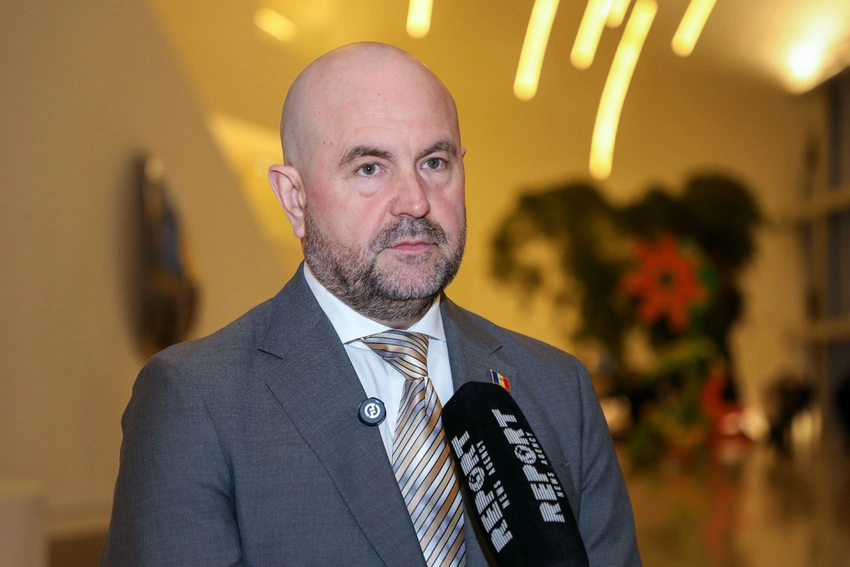
- Is Moldova considering the possibility of participating in joint projects with Azerbaijan on modernizing logistics infrastructure and cargo transshipment in the Caspian, especially in the context of strengthening ties with the Black Sea region?
- The Republic of Moldova does not have direct access to the Black Sea, which certainly limits our opportunities for implementing major regional projects in this direction. Therefore, we are focusing our efforts on developing bilateral cooperation with Azerbaijan in the areas of air transportation and road transport - areas where we see the greatest potential under current conditions.
A certain volume of cargo is still being delivered, however, from a logistics perspective, access to Azerbaijan remains quite complicated. Today we have to use a route that passes through Romania, Bulgaria, and Türkiye, essentially bypassing the entire Black Sea. This increases logistics costs and, consequently, reduces trade turnover in value terms.
Nevertheless, we hope that after the end of the war in Ukraine, it will be possible to restore a direct trade and transport route through Ukrainian territory toward Azerbaijan. This would significantly simplify logistics and reduce costs for both Moldovan and Azerbaijani entrepreneurs.
- How promising is the Trans-Caspian International Transport Route (Middle Corridor) for Moldova? Is the country evaluating the potential of this direction as an alternative to traditional routes through Eastern Europe?
- We are closely monitoring the development of the Trans-Caspian International Transport Route and studying the opportunities it presents. However, at this stage, Moldova does not have direct access to this corridor. Nevertheless, we view it as a potentially important direction in the context of diversifying routes and creating sustainable logistics chains in the future.
- Is Moldova participating in or considering joining the initiative to create a green corridor to simplify procedures and accelerate cross-border transportation within Eurasian transport routes?
- Absolutely. One of the key participants in the future green corridor is Romania, with which Moldova shares a common border. This creates natural prerequisites for our participation in the project. We are interested in the initiative as it directly addresses our strategic goals - optimizing logistics, simplifying customs procedures, and accelerating trade turnover within Eurasian routes.
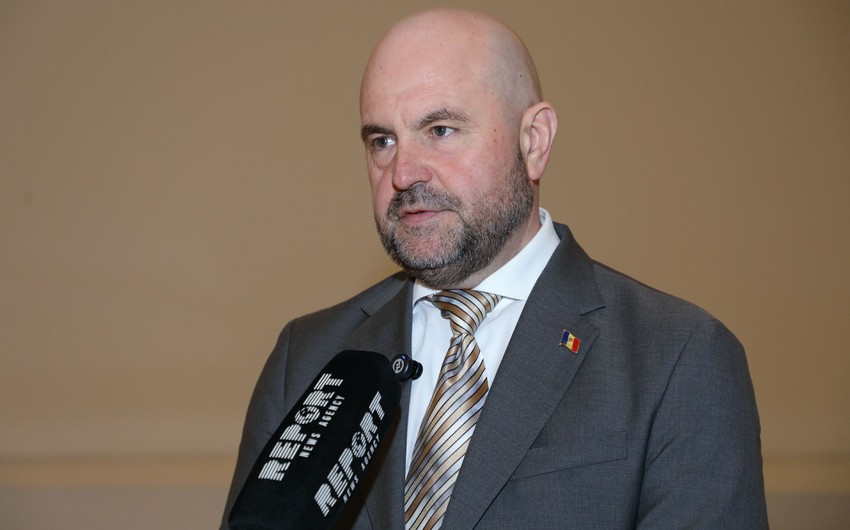
- Given Moldova's priorities in energy security, is the possibility of regular imports of oil and petroleum products from Azerbaijan currently being considered?
- Moldova does not have its own oil refining facilities, so supplies of crude oil are less relevant for us. However, yesterday we held productive negotiations with the Minister of Energy of Azerbaijan, during which we confirmed our interest in importing natural gas, including through the state oil company SOCAR. We are in the stage of active negotiations to conclude long-term contracts with the Azerbaijani side. For Moldova, this is an important direction that can significantly strengthen our energy resilience.
- Is Moldova interested in connecting to existing energy routes from Azerbaijan to Europe, in particular to the Southern Gas Corridor? Is the country considering participation in other initiatives aimed at diversifying energy supplies?
- Absolutely, yes. We are well aware of the strategic importance of the Southern Gas Corridor, which today supplies gas to 12 countries, 10 of which are members of the European Union. Moldova is connected to the EU gas transportation system - this became possible after the commissioning of key interconnectors, including the Iasi-Ungheni-Chisinau pipeline in 2023 and joining the Vertical Corridor in 2024.
Thus, we have direct access to gas supplied through the Southern Corridor, and we are actively negotiating the purchase of Azerbaijani gas through this route.
- What specific steps is Moldova taking to diversify gas imports? What role can Azerbaijan play in these efforts as one of the key energy suppliers in the region?
- As part of our strategy to strengthen energy security and diversify energy supply sources, we are actively negotiating a long-term multi-year contract for natural gas supply. Azerbaijan is one of our key partners in this process.
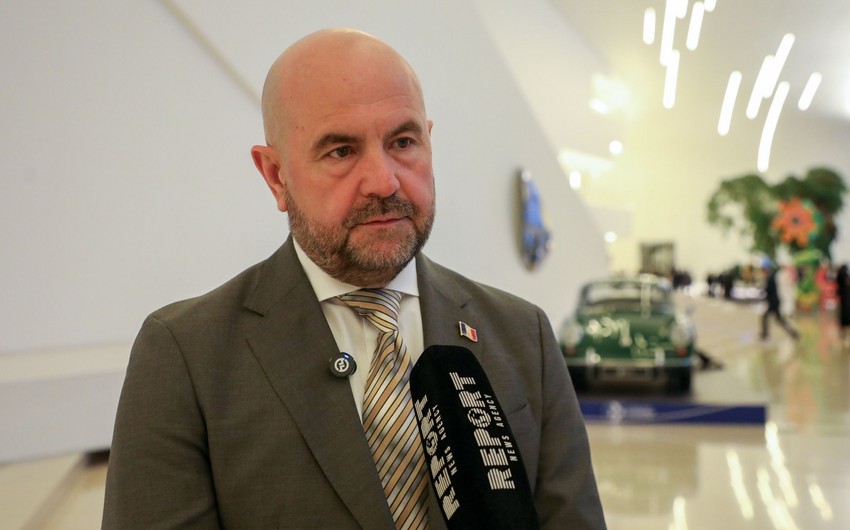
In particular, we are discussing the possibility of importing gas from SOCAR. Additionally, as part of energy and agro-industrial cooperation, we are also considering purchasing mineral fertilizers produced by SOCAR. The company has a logistics base in Romania, and supplies will be organized from this territory, which simplifies integration into the existing infrastructure.
- Is the Moldovan government considering the possibility of attracting Azerbaijani investments in the development of the country's energy infrastructure, including in the renewable energy segment and network modernization?
- Absolutely. This is precisely why we are now in Azerbaijan - to deepen dialogue and build specific areas of cooperation. Of particular interest to us is the development of biogas production technologies. The Republic of Moldova has significant potential: a large amount of available biomass that can be effectively used for energy purposes, for biogas production.
We are interested in attracting investments and advanced technologies in this area. During the meetings, we received full understanding and support from the prime minister and the minister of energy of Azerbaijan - especially regarding possible joint projects for the development of biogas infrastructure, namely the development of technologies for biogas production from biomass.
- How attractive is the format of cooperation with Azerbaijan in the agro-industrial sector for Moldova, especially in the areas of processing, storage, and export of agricultural products?
- Certainly, we see significant potential here. The business forum that will take place today is dedicated to this direction. We invite Azerbaijani entrepreneurs to visit the Republic of Moldova to learn about investment opportunities, especially in the field of agricultural processing.
We have sustainable production of agricultural raw materials, on the basis of which high-quality products can be created. At the same time, Moldova has already aligned its legislation in the field of processing and phytosanitary control with European standards.
This gives us free and quota-free access to the European Union market. Any products manufactured in Moldova from local raw materials can be supplied to the EU without restrictions. Given these advantages, we consider investments in Moldova's agro-industrial sector extremely promising for Azerbaijani companies.
- How do you assess the export potential of Moldovan agricultural products in the Azerbaijani market? Which goods could be most competitive, and are relevant negotiations already underway?
- The main challenge today is the significant distance between our countries and, consequently, the high cost of logistics. Nevertheless, we are determined to offer Azerbaijani retail chains a range of quality Moldovan products. First and foremost, these are wines and so-called "divins" - a product similar to cognac, but produced exclusively from grape wine. We don't use the term "cognac," but our divin is a premium quality beverage with high added value.
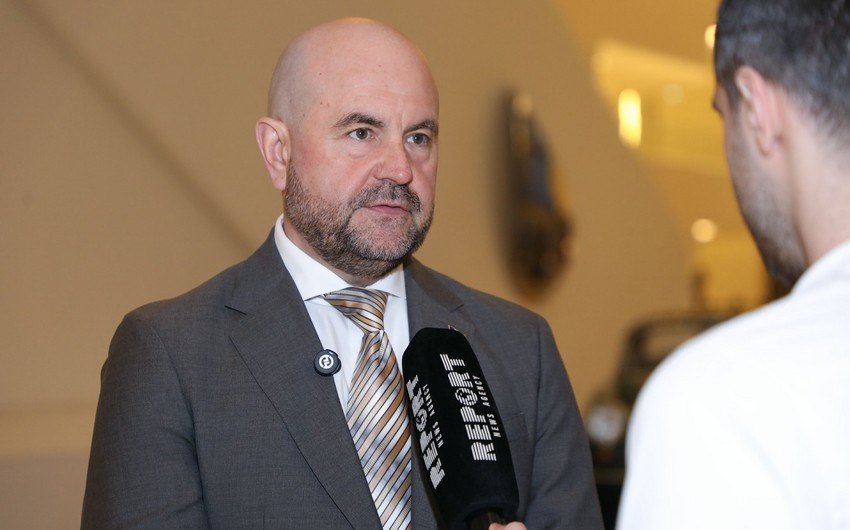
In addition, we are considering the possibility of supplying chilled poultry meat, eggs, as well as walnuts. By the way, Moldova ranks sixth in the world in walnut production and third in the export of this product to the European Union. Walnuts could become another interesting area for interaction.
We know that pakhlava is very popular in Azerbaijan - and it is truly magnificent. And since one of the main ingredients is walnuts, why not use Moldovan walnuts in this traditional dessert? We are confident that this could become a profitable and complementary area of cooperation.
- Does Moldova plan to modernize its irrigation and water management infrastructure? Is the possibility of involving the Azerbaijani side in such projects being considered, given its experience in this field?
- Yes, the process has already been launched. Moldova is investing the first $25 million in the restoration of three irrigation systems: two on the Prut River and one on the Dniester River. These are the first major state investments in the modernization of water management infrastructure for a long period.
So far, we have not made official proposals for cooperation with Azerbaijan in this area. However, today we have a scheduled meeting with the minister of agriculture of Azerbaijan, during which we intend to discuss the possibility of his participation in such projects. If the Azerbaijani side shows interest, we will gladly consider a partnership format and are ready for joint implementation of these initiatives.
 USD - 1.700
USD - 1.700 
 Azerbaijani Version
Azerbaijani Version  Russian Version
Russian Version